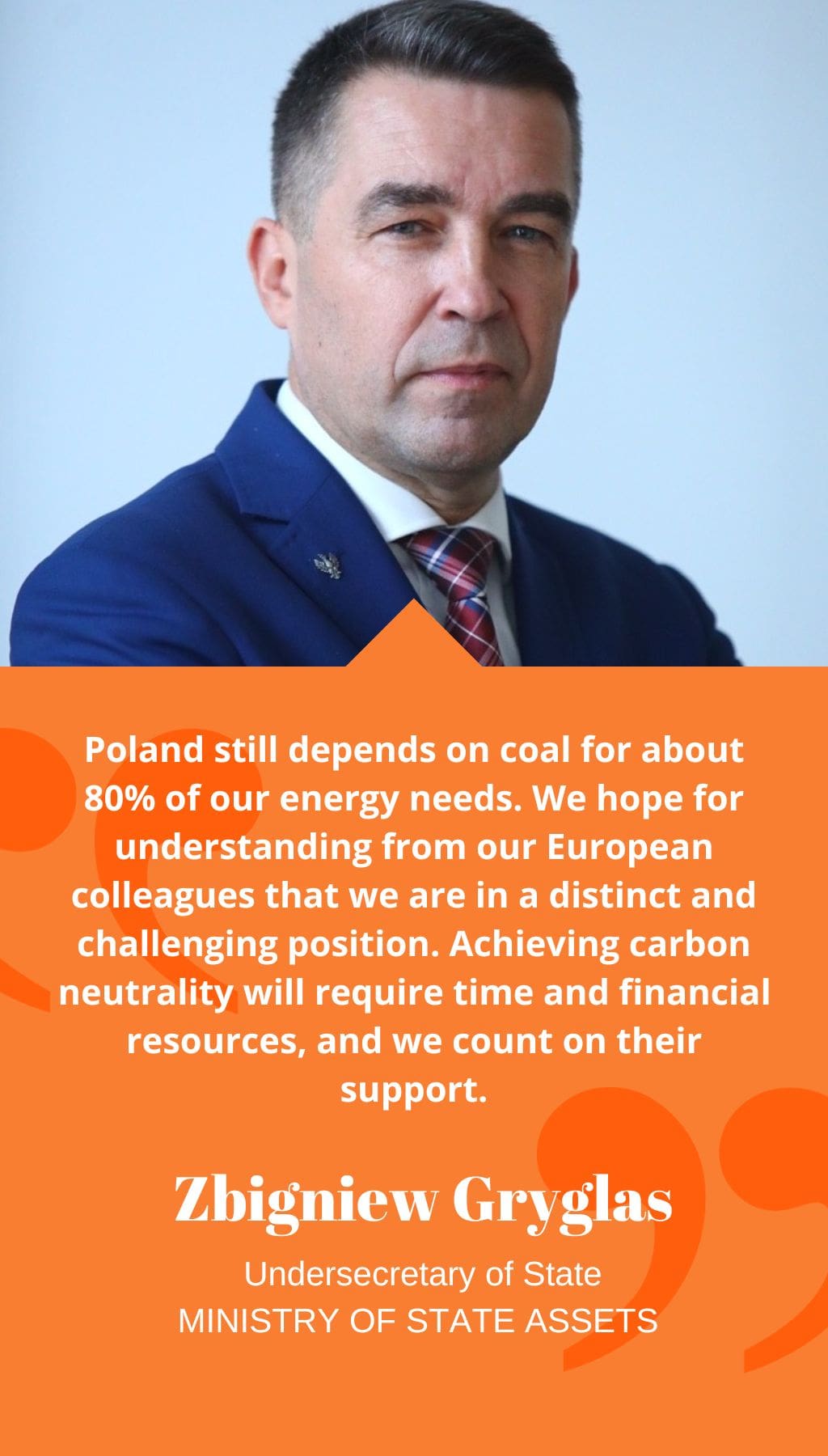
- Poland | 19 June 2019

Mr. Gryglas, as the recent addition to the Ministry of Assets with a specific mission to support offshore wind development in Poland, could you share your vision for this sector?
Certainly! Our ambitious vision is to have almost 20% of our future energy production coming from offshore wind farms by 2040. This would mean thousands of wind mills generating around 10 GW of electricity, or possibly even more considering the rapid pace of technological advancements. It’s a monumental undertaking, as the estimated investment required is as high as PLN 120 billion (approximately EUR 40 billion). One area where we are currently lacking is turbine assembly, but I am confident that global leaders in the wind industry will consider opening factories locally, given the massive volume of units we will need.
It’s impressive to see how robust the local supply chain is. Do you have plans to require developers to source components locally?
We do not intend to force investors, whether local or international, to use a particular source for their components. We welcome and appreciate foreign investors, just like we have successful collaborations with companies like Orsted, working with PGE Baltica, and Equinor, working with Polenergia.
That being said, we believe that Polish products are an excellent option for offshore wind development. Our local companies have a proven track record of delivering high-quality products, such as Telefonica Kable, which holds 40% of the European market share for offshore cables. Moreover, sourcing components locally makes logistical and environmental sense, as transporting components from distant places like Asia can increase costs and have a negative environmental impact.
Do you anticipate the supply chain for offshore wind development to develop organically or do you plan to provide financial incentives?
The Offshore Bill, which is currently in the draft stage, will require every investor to present a local content plan, and we will analyze the performance of each plan. Some investors may aim for a certain percentage of deliveries to come from Poland, while others may require more. We will evaluate and see how this pans out when the time comes.
Another direction we are considering is encouraging collaboration among companies in the supply chain. Some of these companies are under state control, while others are private, but regardless of ownership, it makes sense to coordinate production for final products rather than delivering them separately.
The Offshore Bill has been submitted for public consultation earlier this year. Can you tell us how the industry has reacted to it?
We are confident that the process of finalizing the Offshore Bill will be completed before the summer of 2020. It is now up to the Parliament to accept it, and the final step would be for it to be signed by the President.
Poland recently opted out of the EU’s goal to achieve carbon neutrality by 2050. Considering Poland’s unique circumstances, what is a realistic expectation for the country during this time?
Indeed, our starting point is different from many western countries. While countries like France rely heavily on nuclear energy, Poland still depends on coal for about 80% of our energy needs. We hope for understanding from our European colleagues that we are in a distinct and challenging position. Achieving carbon neutrality will require time and financial resources, and we count on their support.
What kind of support do you specifically expect from the European Union? Do you have any thoughts on the Just Transition Fund, which aims to mobilize over EUR 100 billion?
The costs of this transformation are difficult to calculate accurately. We will certainly utilize our own resources, including local and international investments, but we will need significant support from the European Union as well.
The EUR 100 billion Just Transition Fund is certainly welcome news, and we are also exploring other mechanisms, apart from direct financing, to support regions in transition.














